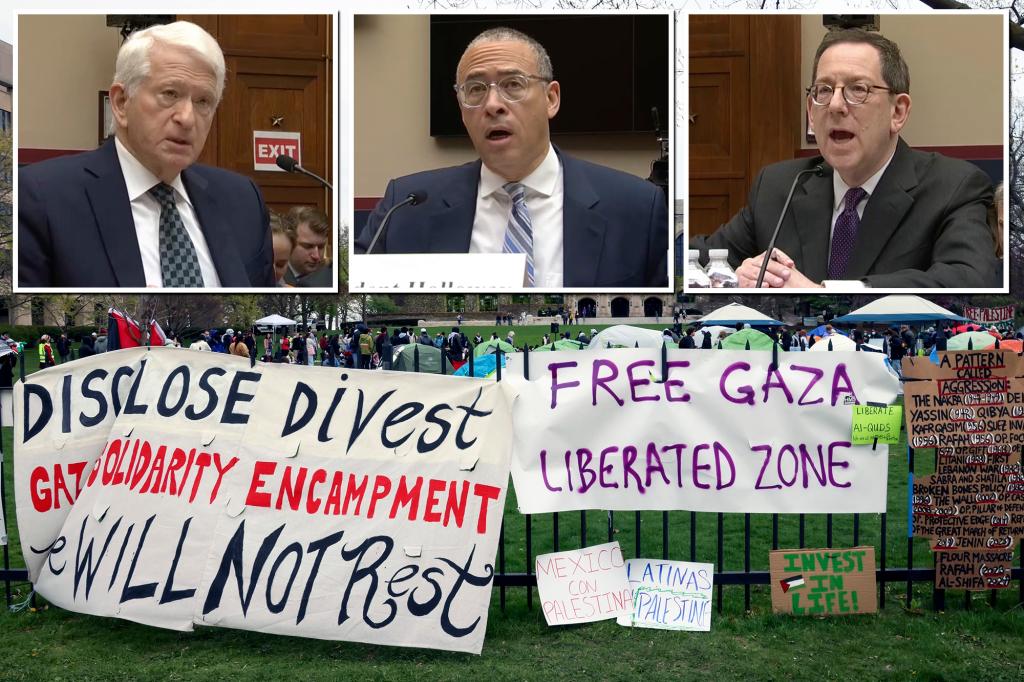The House education panel criticized university presidents from Northwestern, Rutgers, and UCLA for failing to address antisemitic encampments on their campuses that disrupted classes and blocked Jewish students from entering school buildings. President Virginia Foxx condemned the actions of the protesters and accused the university leaders of failing to take appropriate action. The presidents defended their responses, stating that they had authorized law enforcement to crack down on the encampments and blaming some of the worst actions on outside agitators. Despite acknowledging a spike in harassment and intimidation of Jewish people, no protesters had been expelled following investigations across their campuses.
Following the protests, Jewish students and faculty released open letters condemning the antisemitic demonstrations at Rutgers, where protesters praised a terror attack as justified resistance and threatened to globalize the Intifada. The US Department of Education’s Office of Civil Rights is investigating discrimination complaints against UCLA and Rutgers, while Jewish students have filed a federal lawsuit against Northwestern for failing to protect them. During a heated exchange, House Republican Elise Stefanik criticized Northwestern President Michael Schill for receiving an “F” grade in fighting antisemitism and questioned the lack of disciplinary actions against alleged harassers.
Both UCLA and Rutgers received “D” grades on their Anti-Defamation League antisemitism report cards. Schill admitted to caving to demands from protesters at Northwestern, leading to multiple resignations from the advisory committee on preventing antisemitism. Despite claims that the commitments were made in alignment with the university’s values, concerns were raised about hosting faculty members who made controversial statements regarding Zionism and the Israeli-Palestinian conflict. The lack of disciplinary actions against the protesters and questionable responses to incidents of harassment raised further concerns about the handling of antisemitism on campus.
Lawmakers from both parties also voiced their concerns during the hearing. Rep. Kathy Manning described numerous incidents of antisemitism on college campuses, highlighting the normalization of such behavior and criticizing the universities for fostering a biased anti-Israel view. Freshman Rep. Kevin Kiley questioned the university presidents on the potential consequences for blocking students based on their race, religion, or ethnicity. Despite some acknowledgment that certain actions could be expellable offenses, there was uncertainty in the responses from the university leaders.
The hearing also saw disagreements among lawmakers, with some Democrats accusing their Republican counterparts of politicizing the issue of antisemitism on college campuses. Rep. Suzanne Bonamici criticized the repetitive and politicized nature of the hearings, stating that they will not solve the issue of antisemitism. Republicans raised concerns about the lack of police reports for incidents and questioned the funding of the tent cities set up by protesters. Rep. Brandon Williams expressed shock at the university leaders’ lack of knowledge regarding the funding and organization of the encampments, labeling their responses as disingenuous. Despite differing viewpoints, the hearing shed light on the challenges universities face in addressing antisemitism on their campuses.













